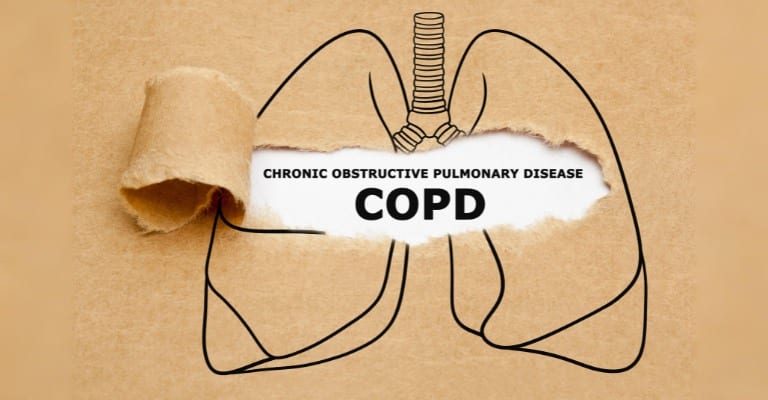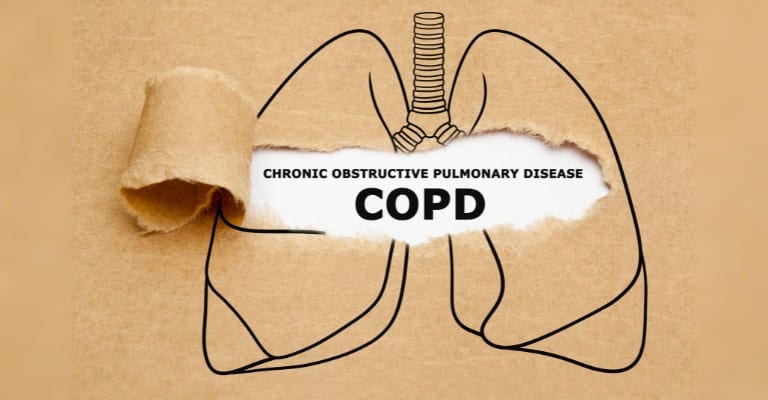ICD-10 Codes for COPD Explore J44.9 (Chronic Obstructive Pulmonary Disease)

Chronic Obstructive Pulmonary Disease (COPD) remains a significant challenge in the healthcare landscape, affecting millions worldwide. With the ICD-10 coding system, medical professionals have a tool for categorizing and managing COPD more effectively. Among these codes, J44.9 stands out as a pivotal classification, offering insights into diagnosis, billing, and treatment strategies.
ICD-Code J44. 9 is a billable ICD-10 code used for healthcare diagnosis reimbursement of Chronic obstructive pulmonary disease.
Understanding COPD and Its ICD-10 Coding
Chronic Obstructive Pulmonary Disease (COPD) is a chronic inflammatory condition characterized by obstructed airflow from the lungs, leading to breathing difficulties, persistent cough, production of mucus (sputum), and wheezing. This condition encompasses several types, including chronic bronchitis and emphysema, each contributing to the spectrum of airflow obstruction and respiratory symptoms. COPD is coded in the ICD-10 system under codes such as COPD (ICD-10 code J44.9) and chronic obstructive lung disease (ICD-10 code J44), highlighting its significance in medical diagnosis and billing.
The Basics of COPD
Definition:
A chronic inflammatory lung disease causes obstructed airflow from the lungs.
Symptoms:
Include breathing difficulty, cough, mucus (sputum) production, and wheezing.
ICD-10 Codes:
COPD ICD 10 code: J44.9
Chronic obstructive lung disease ICD 10: J44
Obstructive lung disease ICD 10: J44.9
Types of COPD:
Chronic Bronchitis:
Characterized by a long-term cough with mucus.
Emphysema:
Involves damage to the lungs over time, leading to shortness of breath.
Chronic nature of COPD means that it progressively worsens over time, with symptoms typically
becoming more severe and frequent. Despite being a long-term condition with no cure, treatments and lifestyle changes can significantly help manage symptoms and improve the quality of life for those affected.
The Role of ICD-10 Coding in COPD
Providing a standardized system for categorizing COPD conditions, ICD-10 codes like COPD ICD 10 (J44.9) and chronic obstructive lung disease ICD 10 enhance the precision of diagnosis and treatment plans. This accuracy is essential not only for tailoring patient care but also for ensuring the integrity of healthcare billing and record-keeping. The use of specific codes such as the ICD-10 code for COPD facilitates streamlined communication across healthcare providers and payers, thereby optimizing patient management and financial processes within the healthcare system.
Key Roles of ICD-10 Coding in COPD Management
The role of ICD-10 coding in the management of Chronic Obstructive Pulmonary Disease (COPD) is multifaceted and crucial for both clinical and administrative aspects of healthcare.
Enhanced Diagnostic Accuracy:
The use of specific ICD-10 codes, such as J44.9 for COPD, ensures that patients receive a precise diagnosis, which is critical for effective treatment planning.
Improved Treatment Plans:
By categorizing the severity and type of COPD, healthcare providers can tailor treatments to individual patient needs, improving outcomes.
Accurate Billing and Reimbursement:
The COPD ICD 10 code (J44.9) allows for precise billing, facilitating correct insurance claims and reimbursements.
Efficient Record-Keeping:
Standardized coding simplifies the documentation process, enhancing the efficiency of healthcare record management.
Facilitates Research and Epidemiology:
The collection of data using specific ICD-10 codes supports research into COPD trends, treatments, and outcomes.
Decoding the COPD ICD 10 Code
Decoding the COPD ICD-10 Code is a crucial process in the healthcare industry, ensuring that patients with Chronic Obstructive Pulmonary Disease (COPD) receive accurate diagnoses and tailored treatment plans. The ICD-10 system classifies COPD under various codes, with J44.9 designated for cases of unspecified COPD. This particular code is applied when the disease does not neatly fall into more detailed classifications, offering a broad category that encompasses a wide range of COPD conditions without specific subtypes.
The precision offered by such coding is indispensable for effective patient care and management, as it directly influences treatment approaches and facilitates the monitoring of the disease’s progression. Moreover, accurate coding underpins the financial aspects of healthcare, being integral to billing processes and insurance reimbursements. It ensures that healthcare providers are adequately compensated for the treatments provided, highlighting the code’s importance beyond clinical implications.
Key Points in Decoding the COPD ICD-10 Code
The key points to consider in analyzing the COPD ICD-10 Code are discussed below:
Exploration of COPD Codes:
COPD is represented by several ICD-10 codes, with J44.9 reserved for unspecified types, serving as a catch-all category for diverse COPD presentations.
Impact on Patient Care:
Accurate use of ICD-10 codes like J44.9 guarantees personalized treatment plans and efficient disease management, optimizing patient health outcomes.
Foundation for Healthcare Billing:
Precise coding is essential for the billing process, affecting insurance claims and reimbursements, and thereby supporting the financial stability of healthcare practices.
Enhances Healthcare Delivery:
By facilitating detailed patient records, ICD-10 codes contribute to the overall quality of healthcare services, allowing for better disease tracking and management strategies.
Understanding and applying the correct ICD-10 codes, such as J44.9 for unspecified COPD, is, therefore, a critical component of healthcare administration and patient care, underscoring the interconnected nature of the medical diagnosis, treatment, and billing systems.
The Significance of J44.9 in COPD Diagnosis
The ICD-10 code J44.9 holds significant value in the diagnosis and management of Chronic Obstructive Pulmonary Disease (COPD), particularly in situations where a patient’s condition does not neatly fall into more narrowly defined categories.
As a general classification, J44.9 is utilized when specific details about a patient’s COPD are either unavailable or the condition does not conform strictly to subtypes like chronic bronchitis or emphysema. This broad categorization ensures that all patients with COPD receive appropriate attention and care, even when their symptoms do not align perfectly with more specific diagnostic criteria.
The Role of J44.9 in COPD Diagnosis
General Classification:
J44.9 acts as a catch-all for COPD cases, ensuring no patient is left without a diagnosis due to atypical presentations or lack of detailed information.
Clinical Utility:
Healthcare professionals rely on J44.9 for diagnosing diverse presentations of COPD, particularly when symptoms do not clearly indicate chronic bronchitis or emphysema.
Versatility in Application:
Its use facilitates a broad approach to COPD management, accommodating a wide range of symptoms and patient histories.
The designation of J44.9 in the medical coding system underscores the complexities of diagnosing COPD, providing a flexible yet structured framework for addressing the disease.
COPD Subtypes and Related ICD-10 Codes
Chronic Obstructive Pulmonary Disease (COPD) encompasses a range of pulmonary conditions, each with its unique presentation and challenges. Among these, two primary subtypes stand out: COPD with Chronic Bronchitis (J44.0) and COPD with Emphysema (J43).
These classifications help healthcare professionals diagnose and manage COPD more effectively, tailoring treatments to the specific needs of each patient.
COPD Subtypes and Their ICD-10 Codes
COPD with Chronic Bronchitis (J44.0):
Characteristics:
This subtype is marked by a persistent cough that produces a significant amount of mucus, reflecting inflammation of the bronchial tubes.
Symptoms:
Patients often experience a long-term cough with mucus production.
ICD-10 Coding:
J44.0 is the code used to specifically identify COPD cases where chronic bronchitis is the predominant issue.
COPD with Emphysema (J43):
Characteristics:
Emphysema involves the destruction of the lungs’ alveoli, leading to difficulties in breathing and inadequate oxygen exchange.
Symptoms:
The key symptom is shortness of breath, often exacerbated by physical exertion.
ICD-10 Coding:
J43 series codes are designated for various forms of emphysema, recognizing the distinct nature of the disease from other COPD types.
These subtypes, while falling under the broad COPD category, necessitate distinct approaches in treatment and management. Accurate coding using the ICD-10 system, such as J44.0 for chronic bronchitis and J43 for emphysema, is crucial. It not only ensures proper patient care but also facilitates research and understanding of COPD’s impact. Additionally, codes like ICD 10 for SOB (shortness of breath) and smokers’ cough (usually coded under symptoms related to respiratory disorders) highlight common COPD symptoms, aiding in comprehensive patient assessment and treatment planning.
Managing COPD Symptoms with ICD-10 Codes
Managing symptoms is a critical component of COPD care, and the ICD-10 coding system plays a vital role in this process by enabling healthcare providers to accurately document and address common symptoms such as shortness of breath and wheezing. These codes not only facilitate effective treatment planning but also ensure that the specific manifestations of COPD in each patient are thoroughly understood and appropriately managed.
Key ICD-10 Codes for Managing COPD Symptoms
Shortness of Breath (Dyspnea)
ICD-10 Code:
R06.2 specifically denotes wheezing, a symptom characterized by a high-pitched sound when breathing, indicative of airway obstruction.
Clinical Relevance:
Recognizing and coding for wheezing with R06.2 is essential for comprehensive patient assessments, guiding interventions to improve airway patency.
These ICD-10 codes are instrumental in the systematic management of COPD symptoms, allowing for nuanced care strategies that address the individual experiences of patients. Through precise coding, healthcare providers can better monitor the progression of symptoms, adjust treatments as necessary, and ultimately aim to improve the overall management of COPD.
Wheezing
ICD-10 Code:
R06.02 is used to identify episodes of shortness of breath, a prevalent symptom among COPD patients, which significantly impacts their quality of life.
Clinical Relevance:
Accurate documentation with R06.02 aids in tailoring treatment plans to alleviate this distressing symptom, enhancing patient comfort and functional status.
Let’s Recap
The ICD-10 coding system, particularly the J44.9 code, plays a crucial role in the management of COPD. It aids healthcare providers in diagnosing, treating, and billing for this complex condition with greater accuracy and efficiency. Understanding the nuances of COPD coding is essential for optimizing patient care and ensuring the sustainability of healthcare practices. Through detailed documentation and precise coding, the medical community can continue to improve outcomes for COPD patients worldwide, underscoring the importance of continued education and adaptation to evolving coding standards.
Table of Contents

The Future of Telehealth Billing in Healthcare

How to Improve Your Medicaid Reimbursement Process

Latest Technology in Outsourcing Billing








